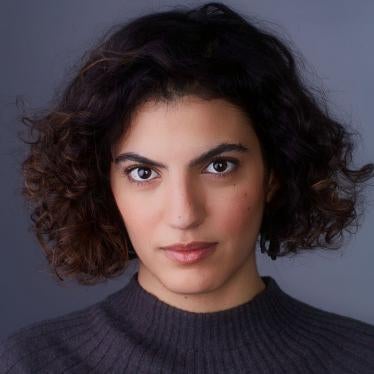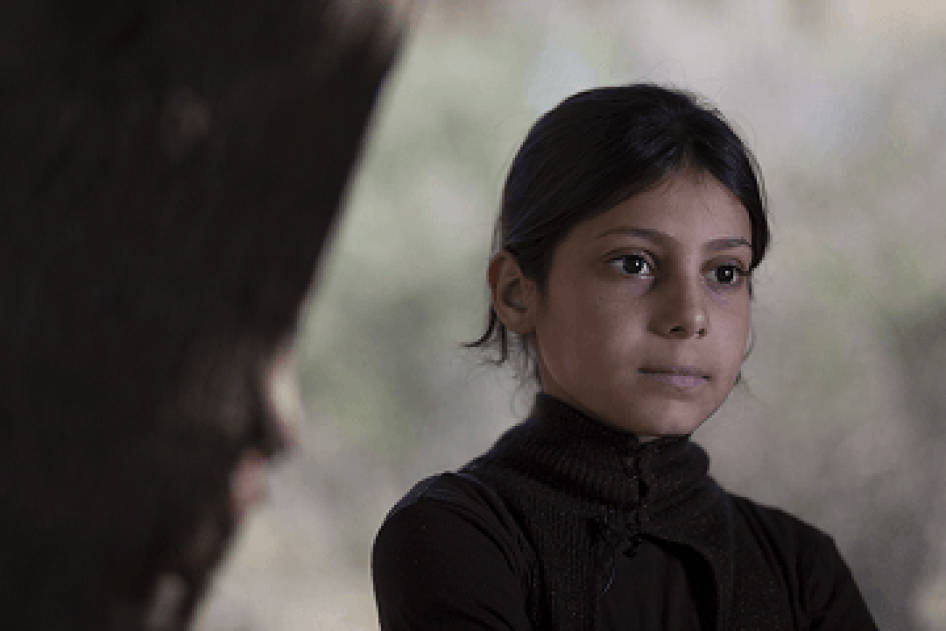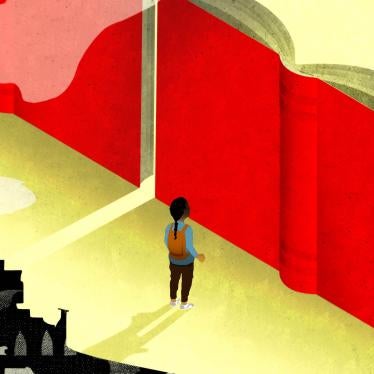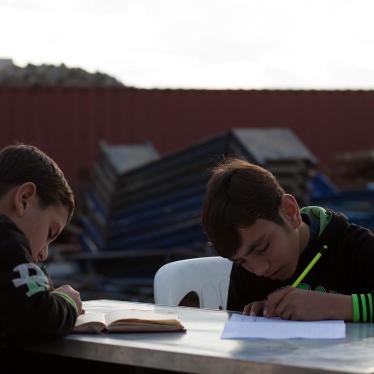I met “Salma” in May at the only maternity clinic in Jordan’s Zaatari Refugee Camp. Having already miscarried twice by age 20, she was then five months pregnant and anxious to finally give birth to her first child.
Salma was among dozens of Syrian refugee women and girls seated in the clinic’s vast waiting area that day. All were hoping to receive prenatal care, find out if they were pregnant, or get family planning advice. Lively chatter filled the room as women took advantage of the rare opportunity to leave their small and rickety temporary shelters to socialize and relieve the overwhelming sense of loneliness born out of displacement and insecurity.
Life in Zaatari, the world’s third-largest refugee camp, is plagued by poor living conditions, lack of electricity, uncertainty, and isolation. The maternity clinic, supported entirely by the United Nations Population Fund (UNFPA) and operated by the Jordan Health Aid Society, offers an oasis from the stresses of camp life. It’s a haven for women, not only providing prenatal care, but meeting myriad other needs such as preventing gender-based violence and providing mental health support services to women and girls suffering from the strain of fleeing war and living in exile.
Salma tries to attend as many of these sessions as possible, but she told me that demand is so high that many women and girls get turned away.
“They offer us these food packages as an incentive to encourage women to come, but what they don’t understand is that women are coming anyway because they want to learn,” Salma said. “We don’t need incentives, we are hungry for information.”
The care offered in the maternity clinic is remarkable given it is in a refugee camp in the Jordanian desert. More than 7,500 healthy babies have been born in the clinic since 2012, without a single mother dying in childbirth.
Funding from the United States has been instrumental in enabling the organization to deliver lifesaving services in humanitarian settings. Yet in July, the House of Representatives’ Committee on Appropriations approved a foreign affairs budget that goes beyond the Trump administration’s decision to block appropriated funds. The House bill prohibits any funding from going to UNFPA, regardless of executive action. Two floor amendments seeking to strike that language were defeated. Advocates of humanitarian aid to people in crisis conditions, especially mothers and children, now look to the Senate to protect UNFPA funding and preserve the important US role of responding to emergency health needs in crises around the world.
The future of these and other vital programs is in doubt. Earlier this year, the Trump administration decided to block funds to UNFPA, citing its statutory authority under a provision called the Kemp-Kasten amendment and raising concerns, without concrete evidence, that the organization’s programs in China may support coercive reproductive health policies and programs. UNFPA disputes this, and Congress already prevents the UNFPA from using any U.S. funding in its China work.
The Senate’s Committee on Appropriations will consider its version of the foreign affairs budget bill in early September. Senators from both sides of the aisle will have the opportunity to protect women like Salma who hope to have healthy pregnancies and deliver their babies safely, even in some of the direst places on earth. As it drafts its version of the budget, the Senate should not only ensure UNFPA is fully funded, but that humanitarian initiatives or operations like those of UNFPA are protected from executive branch efforts to make funding judgments on widely discredited claims.
According to UNFPA, all the programs in Zaatari camp rely either wholly or partially on U.S. funding. But the organization’s reach is global. UNFPA offers a range of programs in more than 150 countries focused on maternal and child health, family planning, and efforts to end child marriage and female genital mutilation and other forms of gender-based violence.
The Trump administration’s decision to cease funding to UNFPA came as a shock to “Hani,” 26, another camp resident who in 2015 became part of a 40-member team made up entirely of camp residents operating a youth center that provides recreational, educational, artistic and mental health activities. The center was created by Questscope, a nongovernmental group, in partnership with the population fund.
Residents planned the center from scratch, he said. Today, the youth center has a grass playing field, a music room, a gym, and a library, and has served over 2,000 youth in the camp.
There is nowhere else in Zaatari where young women and girls can come to a safe space and play sports, learn a musical instrument, read in a quiet library, and get mental health services all in the same space. In separate shifts, the same activities are available to young men and boys.
One of those boys, “Ahmad,” a 17-year-old refugee from Daraa, told me that he had lost at least a year of education because of the war. At first, Ahmad said, he was afraid to seek help. “When I came to the camp it was very difficult, dusty and terrible living conditions, and I felt in isolation,” he told me. “But I saw how the leadership team acted. I felt safe here, not to have war and to develop myself as a person.”
Given the Trump administration’s determination to halt U.S. funding for the population fund, its services to people living in some of the world’s most difficult and dangerous situations face an uncertain future. Even after international donors pledged $207 million to help mitigate the agency’s losses, UNFPA says it still needs $700 million to cover the funding gap it faces between 2017 and 2020, in part because of the U.S. funding cuts.
For the thousands of Syrian residents of Zaatari camp like Salma, Hani and Ahmad and for the people around the world who benefit from the population fund’s programs, Congress should take action to halt the cutoff of U.S. funding to UNFPA. By cutting the funding for these programs, the U.S. is harming vulnerable Syrian refugees and many other people around the world who have nowhere else to turn.










